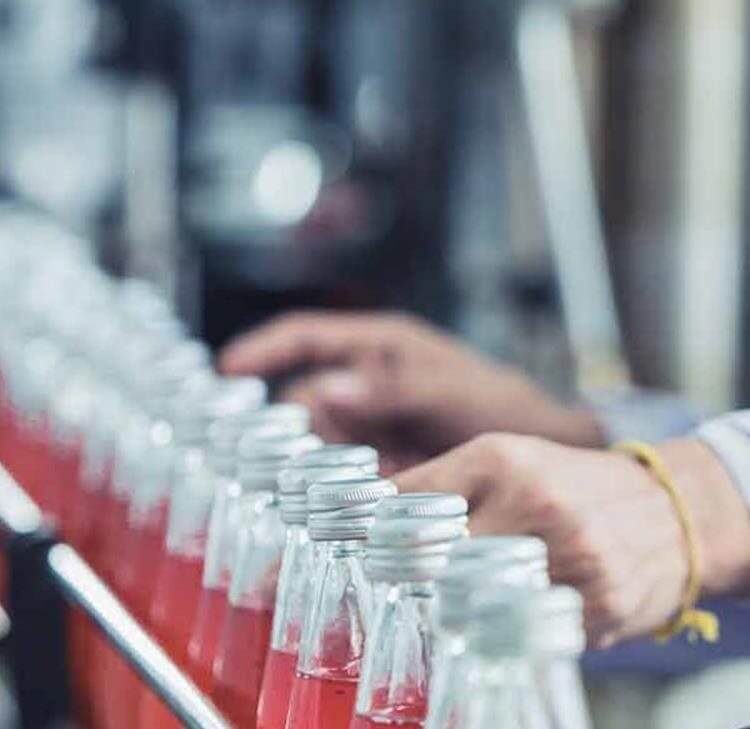Touched upon in our Summer 2024 update, the UK government's latest initiative to combat childhood obesity through stringent advertising is set to take effect on 1 October 2025.
These new regulations will significantly alter how less healthy food and drink products are advertised on TV, online, and on-demand programme services regulated by Ofcom. This move is part of a broader ambition to cultivate the healthiest generation of children in the nation's history, addressing the urgent public health crisis of childhood obesity.
The restrictions include a 9pm watershed for advertising less healthy food and drink products on TV and a comprehensive ban on paid-for online advertising of these products aimed at UK users.
For businesses within the food and drink sector, understanding the scope and implications of these restrictions is crucial. The government's response to the consultation process has clarified the definitions and exemptions outlined in the draft regulations, including specific considerations for audio-only content and a new consultation targeting the application of restrictions to internet protocol television (IPTV) services. There are also exemptions for SMEs and for brand advertising.
Implications for the food and drink industry
The restrictions aim to reduce children's exposure to advertisements for less healthy products, encouraging the industry to innovate and market healthier options more prominently.
Businesses should begin by assessing their product portfolios against the nutrient profiling model (NPM) criteria set out in the regulations to determine which products fall within the scope of the advertising restrictions. This assessment will be crucial for planning future marketing campaigns and product development strategies.
Opportunities for innovation and growth
While the advertising restrictions pose challenges, they also offer opportunities for innovation within the food and drink industry. There is a growing consumer demand for healthier food options, and businesses that lead in developing and marketing these products stand to gain a competitive edge. The restrictions encourage the industry to invest in reformulating existing products to meet healthier standards and to innovate new products that align with public health goals.
Preparing for compliance
To ensure compliance by 2025, businesses in scope should take proactive steps, including:
- Reviewing product portfolios: Identify which products are affected by the advertising restrictions based on the NPM criteria and consider reformulation or new product development opportunities.
- Adapting marketing strategies: Shift focus towards marketing healthier products, especially during peak viewing times for children, and explore creative ways to engage consumers online within the new regulatory framework.
- Engaging with regulatory bodies: Stay informed about the latest guidance from regulatory bodies such as Ofcom and the Advertising Standards Authority (ASA) to ensure all advertising practices are in compliance.
- Investing in training: Educate marketing and product development teams about the new regulations and the importance of aligning product portfolios and marketing strategies with public health objectives.
Conclusion
The UK government's advertising restrictions represent a significant shift in the regulatory landscape for the food and drink industry, driven by the urgent need to address childhood obesity. By understanding the implications of these restrictions and embracing the opportunities for innovation, the industry can play a pivotal role in promoting healthier dietary choices and contributing to the health and wellbeing of future generations.
Contents
You may be interested in...
Legal Update
An update on the new advertising restrictions: Delays to guidance as brand advertising is re-considered
Legal Update - DMCC Act
Consumer Law enforcement: Hot topics harmful online choice architecture and dark patterns
Legal Update
Why digital marketers need to comply with cookie regulations to avoid their campaigns being disrupted
Legal Update
Children’s personal data: Retailers beware of new regulatory changes
Press Release
Intellectual property (IP) predictions for 2025
Legal Update
Alcohol charity on the “Naughty List” for attempts to trade mark “DRY JANUARY”
Legal Update
Dry January and its regulatory implications: A sobering perspective
Legal Update
Sobering thoughts: A look at the alcohol-alternative ad rules
Legal Update
Dry January 2025: Legal considerations for manufacturers, hospitality and retailers
Legal Update
How the new junk food regulations will reshape Christmas advertising
Legal Update
DEFRA provides clarity around the GB wide 'Not for EU' labelling obligations
Legal Update
Technology trends in the food and drink sector: Consumer targeting technologies
Legal Update
Navigating new advertising restrictions on junk food
Legal Update
Will the Online Safety Act help reduce Google ad spoofing in insurance?
Legal Update
ASA bans “misleading” Huel and ZOE ads endorsed by Dragon’s Den Star
Guide
Guidance for manufacturers of EVs and HEVs in the UK: ASA's non-exhaustive electric vehicle advertising guidance
Legal Update
(Deep)fake it till you make it? The ASA's role in regulating false celebrity endorsements
Legal Update
Label with care: The updated rules for marketing ‘No and Low Alcohol Drinks’
Legal Update
ASA ruling on Calvin Klein FKA Twigs advertisement
Legal Update
Veganism and manufacturing: Advertising pitfalls
Legal Update
Pitfalls for retailers to avoid when offering access to ‘buy now, pay later’ products
Press Release
Browne Jacobson’s intellectual property lawyers ranked experts in World Trademark Review guide 2023
Legal Update
Beauty Industry - Plastic Packaging Tax
The war on plastic is being taken to a new level, and businesses that don’t consider sourcing recycled packaging materials could face costly implications.
On-Demand
Privileged communications webinar
In this webinar recording, our experts Mark Daniels and Helen Simm provide you with the key information you need to identify issues relating to the disclosing of documents relevant to litigation, which may have to be disclosed if they are not privileged.


























